Fritextsökning
Artiklar per år
Innehållstyper
-
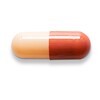
The stomach medication that became the biggest blockbuster of the 1990s
The omeprazole molecule was synthesised as early as 1979, but it took many years before the then Astra had an approved pharmaceutical. Once this happened, a tablet was available that was soon to help millions of people worldwide and break all sales records.
-

The most important Swedish medical innovations: Our ranking
Life Science Sweden turns 20 years old – and celebrates by producing a top list of the 20 most important contemporary Swedish innovations in the field of medicine.
-

Viktigaste medicinska innovationerna plats 8-12
En sjuksköterska, en metallfysiker och ett av Sveriges främsta exportföretag ligger bakom några av innovationerna som återfinns på platserna 8-12 på Life Science Swedens rankning över de viktigaste svenska nutida innovationerna på medicinområdet.
-

Här är hela listan – De viktigaste svenska medicininnovationerna
Högst upp på Life Science Swedens rankning över moderna svenska innovationer inom medicinområdet finns Losec från dåvarande Astra.
-
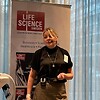
Swedish breakthrough in Alzheimer’s: “We can finally present great data”
Treatments for Alzheimer’s disease are currently among the hottest topics in drug development. Two Swedish research companies with high ambitions and successes in the field participated in Bioscience 2022 conference at Life City in Hagastaden, Stockholm.
-
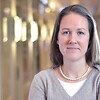
"Are we doing business the wrong way around in the Life Science Sector?"
For the past 50 years we have created solutions for problems that we thought would solve the problems. Pharmaceuticals have created big block buster drugs which were great for that time but now we realise that these drugs were in fact only tested in white men and certainly not for patients who are older who are taking a number of medications.
-
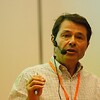
Renrumsprofessorn: Avancerad teknik ingen garanti för god hygien i operationssalen
Robotar och ny teknik må underlätta kirurgens arbete – men gör det inte lättare att hålla operationssalen ren och hygienisk. Det menar Matts Ramstorp, Sveriges och förmodligen hela västvärldens enda professor i renrumsteknik.
-
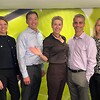
Cytel Inc acquires the SDS Group
The multinational statistical software developer and contract research organization Cytel Inc, headquartered in Massachusetts, USA, acquires the Swedish consulting company SDS Life Science.
-
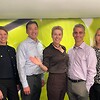
SDS-koncernen köps av amerikanskt bolag
Cytel Inc, med huvudkontor i Massachusetts, USA, förvärvar det svenska konsultbolaget SDS Life Science.
-

The TFS family is growing
TFS HealthScience is a European based CRO company with broad expertise and experiences in the biotech and pharmaceutical sector. The company is growing and the TFS family welcomes new members.
-

Rätt inställd hörapparat kan minska tinnitusbesvär
Enligt en studie från Lunds universitet kan en enkel undersökning och rätt inställning av hörapparater minska tinnitusbesvär.
-
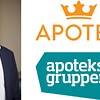
Klart med namn för apoteksjätten
Den nya sammanslagna apoteksjätten ska heta Kronans Apotek. Därmed försvinner varumärket Apoteksgruppen.
-

Biosimilars bring price pressure, but are they sufficiently used?
When biosimilars were introduced just over 16 years ago, hopes were raised that they would give many more patients access to effective but otherwise extremely expensive treatments with biological drugs. So, how well has Swedish healthcare used biosimilars? The answer partly depends on whom you ask.
-
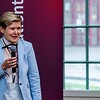
FOKUS Patient turns international
FOKUS Patient is arranging conferences over 3 days in October, and this year, the focus will be on international collaborations.
-
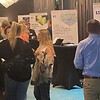
Stort engagemang på möte om medicinteknik: "Vi vet att lösningarna finns"
Hur ska alla innovativa medicintekniska lösningar inom diagnostik och behandling kunna nå patienten – utan att snubbla på alla juridiska, tekniska och formella hinder på vägen? Det var ämnet för ett välbesökt event i Göteborg på onsdagen.
-

Amorphous materials take centre stage when Orexo develops new formulations
Swift resolution but with maintained stability. Orexo’s new drug delivery platform tackles the problem of amorphous materials. “Our technology has the positive properties of the material, and it also cracks some of the problems,” says the company’s Research and Development Manager Robert Rönn.
-
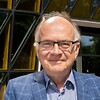
Göran Stiernstedt: “We are the world’s worst at continuity”
Failed investments in primary care, an unreasonable system with online doctors and a public failure at coordinating the healthcare IT system. Göran Stiernstedt does not mind his language when describing the shortcomings of today’s healthcare system
-
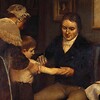
The first vaccine derived from cowpox
The British rural doctor could not forget the words of the peasant girl. Could that really be true? A couple of decades later, on 14 May 1796, he performed the world’s first smallpox vaccination, and a medical breakthrough had occurred.
-

Anna Törner: To kill your darlings
Hopes were high when Anna Törner and her colleague started a study on a dietary supplement that seemed unbelievably good. “Enthusiastically, we dreamed of exciting results and perhaps a publication in a high-impact journal,” she writes in a column.
-
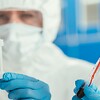
New rules for diagnostic products, but who will certify them? “An extreme shortage area”
In less than two weeks, new and stricter EU rules will enter into force for thousands of products used in important diagnoses of, among other things, cancer and Covid-19. However, not one single institute in the entire Nordic region is able to certify the diagnostics companies’ products according to the new regulations. “In the end, it risks affecting patients,” says Anna Lefèvre Skjöldebrand, CEO of Swedish Medtech.
-

Studie: Covidvaccin till gravida ökar inte risken för komplikationer för barnet
En stor registerstudie från Karolinska institutet pekar på att vaccin mot covid-19 under graviditet inte medför någon ökad risk för tidig födsel, tillväxthämning eller andra komplikationer för det nyfödda barnet.
-
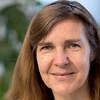
CAR-T therapies give continued hope: “Almost half of the patients have become disease-free”
When the first CAR-T therapies appeared, hopes were raised for the effective treatment for critically ill cancer patients. After a somewhat sluggish start, about 90 patients in Sweden have now been treated with this method. “Almost half of them have become disease-free, at least of those treated with Yescarta, which are the ones I know best,” says Gunilla Enblad, Chairman of the national working group for CAR-T treatment.
-
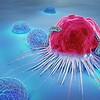
CAR-T-terapier inger fortsatt hopp: ”Nästan hälften har blivit sjukdomsfria”
När de första CAR-T-terapierna dök upp väcktes förhoppningar om effektiv behandling för svårt sjuka cancerpatienter. Efter en något trög start har nu omkring 90 patienter i Sverige behandlats med metoden. – Nästan hälften har blivit sjukdomsfria, åtminstone när det gäller behandling med Yescarta som jag känner bäst till, säger Gunilla Enblad, ordförande för den nationella arbetsgruppen för CAR T-behandling, till Life Science Sweden.
-
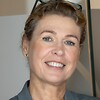
Anna Törner: Success requires bold decisions!
“Doing things right is fine, but doing the right things as soon as possible is even better”, writes Anna Törner in a column.